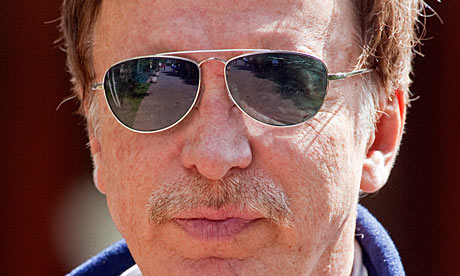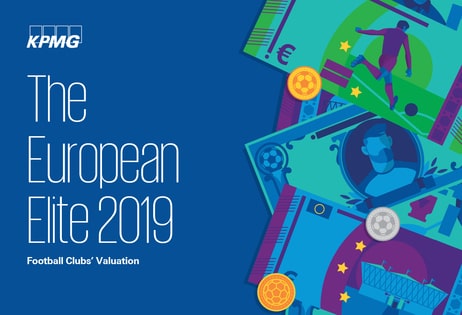Kroenke did not just enthuse about buying a top Premier League club, with its gleaming, money-spinning Emirates Stadium, home of the famous first £100 ticket; or of Arsène Wenger's easy-on-the-eye young side. He spoke about "a rich heritage" and "special history and tradition".
Since Hill-Wood's grandfather, Sir Samuel Hill-Wood, arrived at Highbury in the 1920s, having dropped Glossop North End in the town where the family made its cotton-mill fortune, Arsenal have been the blue-chip club with double-barrelled names in the boardroom. In recent times, despite boardroom bust-ups, shareholders cashing in and the stand-off between Kroenke and the Russian magnate Alisher Usmanov, a halo has risen above the Emirates.
The parliamentary committee on culture, media and sport, inquiring into whether football supporters are "ill-served" by the game-turned-global business, were guided around Arsenal as the supposed moral stand-out, next to the other big clubs. Scrabble through all the talk of ethos, spirit, tradition and heritage, however, and this is what happened yesterday. Kroenke announced that he has agreed to pay £11,750 for each share owned by all the Arsenal directors and Lady Nina Bracewell-Smith, who inherited her shares from her great-grandfather-in-law, Sir Bracewell Smith, the builder of the Park Lane Hotel in the 1920s.
Lady Nina will pocket £116m. Partly the sale is happening now because Danny Fiszman is seriously ill – he will be paid £117m for his stake, adding to the £42.5m he made from selling 8% to Kroenke two years ago. Shortly before that Fiszman moved to Switzerland, so he is a tax exile, paying no UK tax on the capital gain he is making on the Arsenal shares.
Hill-Wood sold some shares to David Dein just before the 1992 Premier League breakaway and subsequent commercial revolution which made shares in football clubs lucrative for the first time – not the "dead money" Hill-Wood called them, famously, in the 1980s. He made £850,000 selling some more shares to Kroenke in December 2009, before disposing of the rest this week.
This bonanza is a long way from what Hill-Wood contemplated when Dein was thrown off the Arsenal board in April 2007 for encouraging Kroenke to buy his first 9.9% stake. Hill-Wood said then that he, Bracewell-Smith, the Carr family and Fiszman would be "horrified to see the club go across the Atlantic".
Then Hill-Wood, expanding on whatit meant to be a "custodian", said of Kroenke: "The club has been run for the benefit of supporters, staff and players and the shareholders would prefer to stay in control than sell out to some stranger without the years of support they have. Having a few extra million pounds in the bank is of no interest. We're here for Arsenal Football Club. Not to make a few bob."
Now Hill-Wood says Kroenke, after a couple of years on the board, is the right person to control Arsenal, a man who will protect the "ethos and spirit" of the club. Arsenal tend to wave the word "custodian" around, however, so perhaps it should be explained, in the light of football's "history and tradition".
"Custodian" was what directors and shareholders used to call themselves in the 100 years when buying into a club really did represent "dead money". Their responsibility – not always discharged with distinction – was to safeguard a club for its supporters, its town or city. Football's guardians said that the motivation, as Hill-Wood claimed four years ago, was opposite to wanting to make money.
Andy Green, the writer of the andersred blog on football's financial search for its soul, recently unearthed a Daily Sketch article from 1909 which stated: "The Football Association does not allow the private proprietorship of clubs for speculation and profit." A club then, growing tremendously on loyalty of the masses around it, had to be "a genuine club, formed by the voluntary effort of a number of people resident in the locality".
The FA lost the confidence to guide football's moral compass years before Kroenke rode into Islington. Now it has no role to play, and nothing to say, in the takeover of one of the greatest clubs. The statements on Kroenke's behalf yesterday embraced the image of Arsenal as having special traditions but there is reason to be cautious in the detail. His company, which will hold the shares, is registered in Delaware, where there is no tax to pay and next-to-zero transparency.
Kroenke stated that the £239m he is paying Fiszman, Bracewell-Smith, Hill-Wood and the other Arsenal directors will not be funded "by way of any debt finance … which will depend on the business of Arsenal". Tom Hicks and George Gillett made a very similar claim in their 2007 offer to buy Liverpool but then, in Gillett's words, "circumstances changed". The pair took millions out of the club in order to pay the interest on their own borrowings.
There are no guarantees. Nor does it appear Kroenke intends to put money into Arsenal itself, only to pay his millions to the outgoing shareholders. That is what all yesterday's talk of the "self-sustaining business model" means – that Arsenal will run on what the fans pay over, for the £100 seats and other pricy tickets. Kroenke himself will not be contributing.
The American may indeed turn out to be a long-term, competent owner of this club of grand tradition. He may not turn a quick fortune for his Delaware holding company. But the word "custodian" is being debased and its principles need to be reclaimed.{jcomments on}
 IN ENGLISH
IN ENGLISH 









































